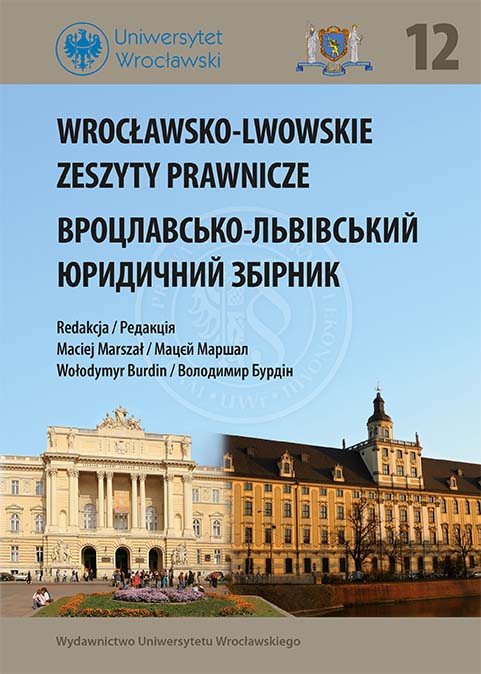

Articles

The judicial examination in the criminal proceedings of France as one of the ways to achieve substantive (objective) truth
The article provides a comprehensive analysis of the features of the French criminal process, as well as its impact on the organization of forensic support of the judiciary in France. The importance of forensic examination to achieve the material (objective) truth in criminal proceedings is substantiated.
In particular, it was emphasized that today the criminal process of France as a state with a mixed form of the criminal process embodies the concept of material (objective) truth, which involves understanding the truth as the conformity of the facts and circumstances established in the process of proving with regard to a certain reality, which are relevant for criminal proceedings, to this reality.
The main subjects of criminal proceedings, who are obliged to achieve such truth in France, are the investigating judge and the court, which, among other things, have the right to involve experts and entrust them with examinations, including on their own initiative.
It is established that the peculiarities of the process that dominates the state directly affect the procedure for involving a forensic expert in criminal proceedings. The procedure of involving an expert and conducting a forensic examination in the French criminal process, the rights of the parties in involving a forensic expert and the procedural status of the latter are analyzed.
The requirements for a person wishing to carry out forensic activities are defined. The peculiarities of maintaining registers of forensic experts and their significance have been clarified. It is argued that the existence of such official lists of forensic experts does not necessarily indicate the appropriate competence and high professional level of experts. The requirements for the expert's opinion and the peculiarities of the expert's interrogation based on the results of his expert research have been studied.
It has been proved that the achievement of the truth in a case is its “raison d'être”, that is, “meaning of existence” of the criminal process in France. This orientation of the criminal process in this state has its direct impact on the legal regulation and practice of organizing and conducting a forensic examination.
Moreover, it is concluded that the expert's opinion is one of the important means of establishing the material (objective) truth in criminal proceedings in France, provided that it meets the requirements of such a document, as it is an independent source of evidence in the case, and, therefore, can be used as a basis for accusation or acquittal of a person.
Ekspertyza sądowa w postępowaniu karnym Francji jako jeden ze sposobów ustalenia prawdy materialnej (obiektywnej)
W artykule kompleksowo przeanalizowano cechy francuskiego procesu karnego, a także jego wpływ na organizację kryminalistycznego wsparcia wymiaru sprawiedliwości we Francji. Udowodniono znaczenie badania kryminalistycznego dla ustalenia materialnej (obiektywnej) prawdy w postępowaniu karnym.
Szczególnie podkreślono, że w karnym procesie Francji, jako państwa o mieszanej formie procesu karnego, zostało wprowadzone pojęcie prawdy materialnej (obiektywnej), co wiąże się z rozumieniem tej ostatniej jako zgodności faktów i okoliczności ustalonych w proces udowodnienia znaczenia dla postępowania karnego, tej rzeczywistości. Głównymi podmiotami postępowań karnych, które są zobowiązane do ustalenia takiej prawdy w Francji, są sędzia, śledczy i sąd, którzy mają prawo m.in. do samodzielnego, a także z własnej inicjatywy, zaangażowania ekspertów i zlecania im ekspertyz sądowych.
Ustalono, że specyfika procesu, który dominuje w państwie, wpływa bezpośrednio na procedurę angażowania biegłego sądowego w postępowanie karne. Przeanalizowano procedurę angażowania biegłego i przeprowadzania badania kryminalistycznego, prawa stron do angażowania biegłego oraz status procesowy tego ostatniego.
Zdefiniowano wymagania dla osoby, która chce wykonywać czynności kryminalistyczne. Wyjaśniono specyfikę prowadzenia rejestrów biegłych sądowych i ich znaczenie. Argumentowano, że istnienie takich oficjalnych list biegłych medycyny sądowej niekoniecznie świadczy o odpowiednich kompetencjach i wysokim poziomie profesjonalizmu takich osób. Zbadano wymagania dotyczące opinii biegłego oraz specyfikę przesłuchania biegłego na podstawie wyników jego ekspertyz.
Udowodniono, że ustalenie prawdy w sprawie jest jej raison d’être, czyli samym „sensem istnienia” francuskiego procesu karnego. Ten kierunek procesu karnego we Francji ma bezpośredni wpływ na regulację prawną oraz praktykę organizowania i przeprowadzania ekspertyz kryminalistycznych. Ponadto stwierdzono, że opinia biegłego jest jednym z ważnych środków ustalenia materialnej (obiektywnej) prawdy w postępowaniu karnym we Francji, o ile spełnia wymogi takiego dokumentu, gdyż stanowi niezależne źródło dowodu w sprawie, a zatem może służyć jako podstawa do oskarżenia lub uniewinnienia osoby.